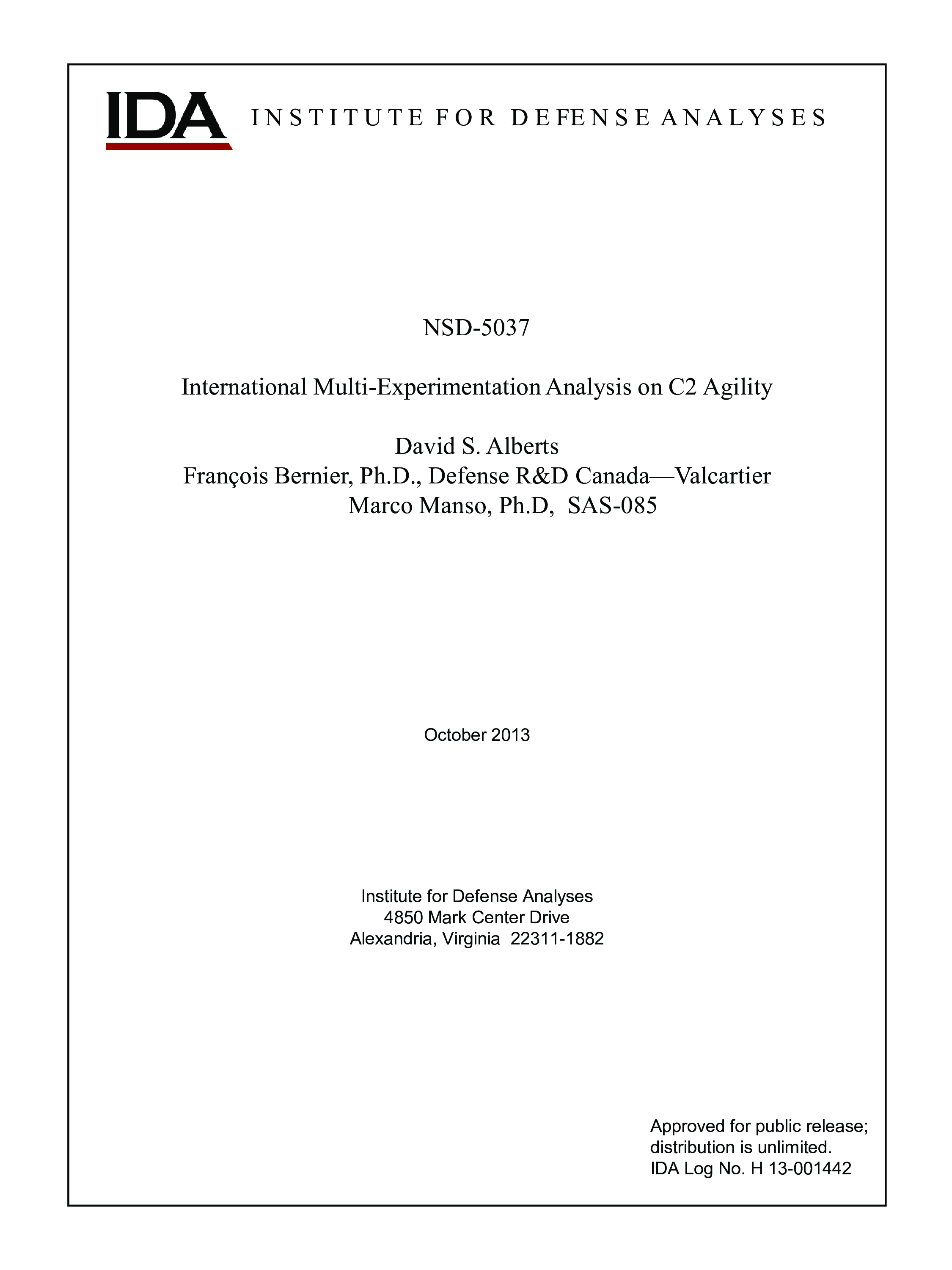International Multi-Experimentation Analysis on C2 Agility
October, 2013
IDA document: D-5037
FFRDC: Systems and Analyses Center
Type: Documents
Division: Strategy, Forces and Resources Division
Authors:
IDA document: D-5037
FFRDC: Systems and Analyses Center
Type: Documents
Division: Strategy, Forces and Resources Division
Authors:
Authors
David S. Alberts, François Bernier, Marco Manso
See more authors

